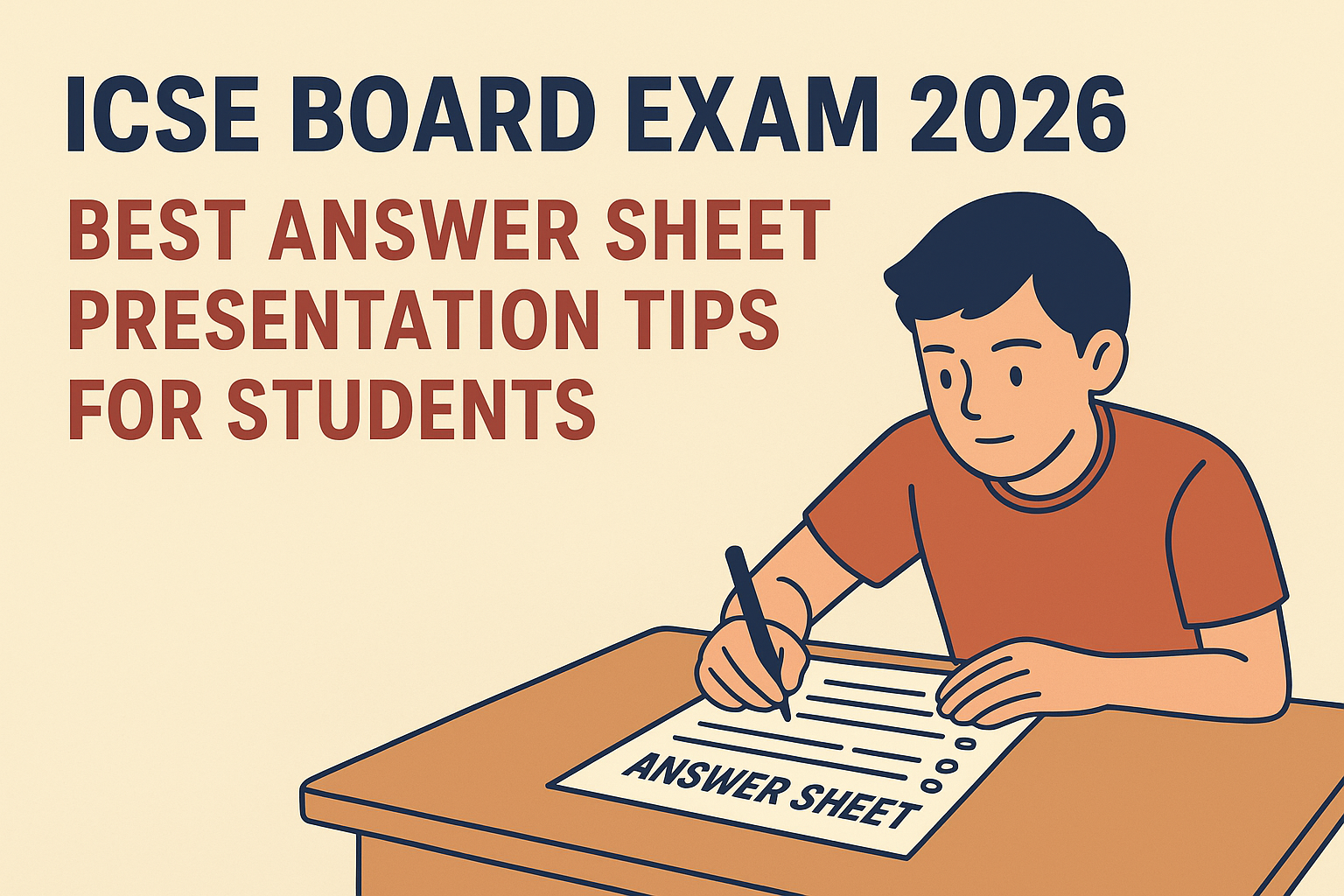Best Answer Sheet Presentation Tips for Students
One of the most underrated aspects of exam preparation is answer-sheet presentation. Students often spend hours studying preparation techniques, memorization methods, productivity hacks, and ways to overcome procrastination. Yet, very few prepare for what truly matters once they step into the examination hall — how to present their answers clearly, effectively, and exam-friendly.

Follow instructions:
Write Legibly: Ensure your handwriting is clean, neat, and easy to read. Use medium-sized letters—neither too small nor overly large—and maintain consistent spacing between words and lines. Clear handwriting not only improves presentation but also helps the examiner understand your answers without effort.
Structure Your Answers: Begin with a clear definition or a brief overview to introduce the concept. This sets the context and helps the examiner understand exactly what you are going to explain.
Use Bullet Points: Present key information using bullet points or numbered lists. This makes your answer well-organized, easy to follow, and visually appealing to the examiner.
Leave Space: Leave a gap of 1–2 lines before starting a new answer. This simple habit keeps your answer sheet clean, well-organized, and much more examiner-friendly.
Highlight Key Points: Underline only the most important words or phrases—avoid underlining entire sentences. Use a single, straight line for neatness and stay away from wavy or uneven lines. This helps the examiner quickly spot the core ideas in your answer.
Correct Mistakes: Avoid overwriting, as it makes your answer look messy and can confuse the examiner. Instead, neatly cross out the error with a single, clean line. Do not use an eraser on pen-written answers—it often smudges and reduces the overall neatness of your sheet.
Exam Strategy and Practice
Read the Question Carefully: Go through the question paper attentively and understand what each question demands. Plan the order in which you will attempt the questions to maximize clarity, confidence, and scoring potential.
Manage Your Time: Practice regularly to improve your writing speed naturally. Consistent timed practice helps you complete the paper on time without rushing or compromising the quality of your answers.
Practice with Past Papers: Solving previous years’ papers helps you understand the exact style, pattern, and structure of exam questions. It also strengthens your time-management skills when you attempt them within the actual exam duration.
Plan a Timetable: Create a balanced study schedule that includes both revision and dedicated practice sessions. A well-structured timetable ensures consistent preparation and helps you retain concepts more effectively.
Take Regular Mock Tests: Attempt mock tests frequently to sharpen both speed and accuracy. Regular practice under exam-like conditions boosts confidence and helps you identify areas that need improvement.
Practice Consistently: Studying for 1–2 hours every day is far more effective than rushing through last-minute preparation. Regular practice strengthens understanding, improves retention, and reduces exam stress.

